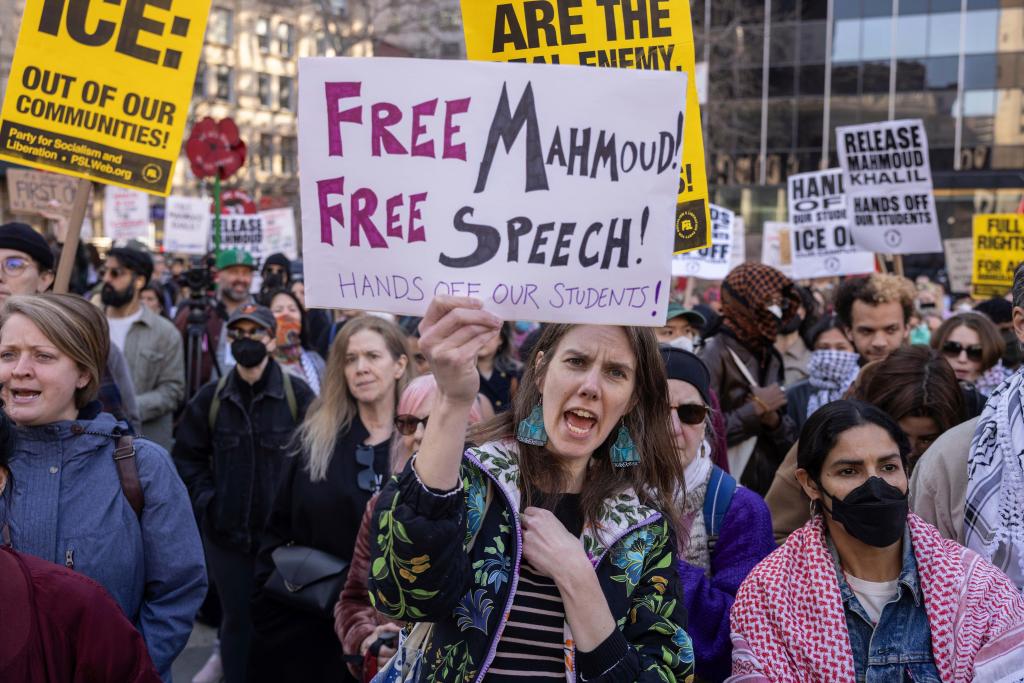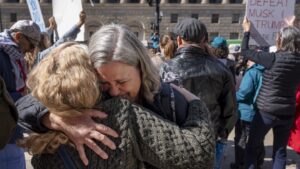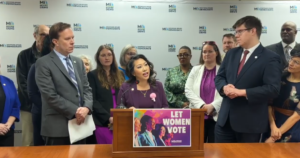
Free Speech Concerns Escalate as Trump Administration Faces Criticism
DENVER (AP) — The issue of free speech in America has become a heated topic of debate during President Donald Trump’s second term. While the president claims to have revitalized free speech, critics argue that recent actions by his administration suggest otherwise.
President Trump recently lauded his efforts to restore free speech in his joint address to Congress. However, advocates for the First Amendment are raising alarms over what they describe as unprecedented threats to freedom of expression under Trump’s leadership.
Concerns have been fueled by actions such as the administration’s investigation threats against Democratic members of Congress, the withdrawal of federal funding for certain language in grants, and sanctions on law firms representing political opponents. The arrest of Mahmoud Khalil, a Columbia University graduate student, by immigration authorities has further intensified the debate, with Trump’s administration labeling his pro-Palestinian protests as “anti-Semitic” and “anti-American.”
Will Creeley from the Foundation for Individual Rights and Expression commented, “Your right to say something depends on what the administration thinks of it, which is no free speech at all.”
Immigration Moves and University Pressures
Trump has taken credit for Khalil’s arrest, while Khalil’s legal team claims it is an attempt to stifle his activism. Secretary of State Marco Rubio backed the administration’s stance, stating that their actions do not infringe upon First Amendment rights but rather focus on individuals with no legal right to be in the U.S.
Recently, a federal judge issued an order blocking Khalil’s deportation while his case is examined. In a statement, Trump indicated this could be the first of many similar arrests.
Critics from across the political spectrum, including conservative commentator Ann Coulter, have expressed discomfort with these actions, questioning their alignment with First Amendment principles. Meanwhile, Columbia University has faced pressure from the administration to curtail anti-Israel activism, with threats of repercussions for supporting protests deemed “illegal.”
Impact on Federal Funding and Legal Representation
The Trump administration’s policies extend to federal funding, where a recent order halted support for diversity, equity, and inclusion initiatives, freezing grants for projects with certain language. This has sparked backlash from academia, with Todd Wolfson of the American Association of University Professors voicing concerns over research restrictions.
Efforts to curb dissent have extended to media and legal sectors, with the administration taking legal action against media outlets and law firms linked to political adversaries. The Knight First Amendment Institute’s Jameel Jaffer highlighted the chilling effect on lawyers who might be deterred from challenging the administration.
Political Backlash and Congressional Tensions
Members of Congress have also come under scrutiny. Acting U.S. Attorney Ed Martin’s letters to Democratic leaders have been perceived as attempts to intimidate and stifle political opposition. Rep. Robert Garcia of California publicly resisted these pressures, asserting his right to oppose the administration.
As these developments unfold, the debate over the balance between national security, immigration policy, and constitutional rights continues to stir political and public discourse.
Fernando reported from Chicago. Contributions by Matt Lee in Shannon, Ireland.
The Associated Press receives support from several private foundations to enhance its explanatory coverage of elections and democracy. See more about the AP’s democracy initiative here. The AP is solely responsible for all content.
Originally Published:






